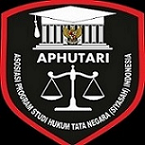Pemberian Nafkah Anak Ditinjau Dari Undang-Undang No. 23 Tahun 2002 Tentang Perlindungan Anak
Abstract
This study examines how the responsibility for child maintenance after divorce and the factors behind the father not providing a living for the child after divorce in Silandit Village, South Padangsidimpuan District, Padangsidimpuan City. This type of research is field research with a qualitative approach. Primary data sources are research data sources obtained directly from the original source in the form of interviews with the Lurah and the community who are the object of research in Silandit Village, while secondary data can be in the form of books, Al-Qur'an, Journals, and other sources that related to research. Data collection techniques are by doing 3 methods in this study, namely by interview, observation, and documentation. The data analysis technique in this study is descriptive qualitative, namely describing, and summarizing various conditions, situations from various data collected, in the form of interviews and documents regarding the problems studied that occur in the field. The results of research on parental responsibility for children's livelihood after divorce in Silandit Village, there are three results, first: parents do not provide a living for their children after divorce and give it to their grandmother, Second: parents provide maintenance for their children but do not every month, Third: parents are irresponsible and neglect their obligations as a father. The factors behind parents not providing a living for their children are economic factors, psychological factors, parents remarrying factors, irresponsible factors, female parents being able to provide children's living expenses.
Keywords
Full Text:
PDFReferences
- A. Sumber Buku
Abd. Shomad. Hukum Islam. Jakarta: Kencana, 2010.
Beni Ahmad, Saebani. Fiqh Munaqahat 2. Bandung: Pustaka Setia, t.t
Kompilasi Hukum Islam
Undang-Undang No. 1 Tahun 1974 Tentang Perkawinan
- B. Sumber Jurnal
Arifin, Musa. “Problematika Nafkah Mantan Isteri Pasca Perceraian.” Jurnal el-Qanuniy: Jurnal Kesyariahan dan Pranata Sosial, Vol. 4, No. 2 (2018).
Enghariano, Desri Ari. “Pandangan Hukum Ali As-Shobuni Tentang Perceraian.” Jurnal Al-Maqasid: Jurnal Kesyariahan dan Keperdataan, Vol. 7, No. 2 (2021).
Hasibuan, Zulfan Ependi. “Pemahaman Tentang Pemeliharaan, Nafkah dan Pengangkatan Anak Dalam Hukum Islam.” Jurnal el-Qanuniy; Jurnal Ilmu-ilmu Keyariahan dan Pranata Sosial, Vol. 7, No. 1 (2021).
Kurniawan, Puji. “Perjanjian Perkawinan; Asas Keseimbangan Dalam Perkawinan.” Jurnal el-Qanuniy: Jurnal Ilmu-Ilmu Kesyariahan dan Pranata Sosial, Vol. 6, No. 1 (2020).
Mustafid, Sobhan, Nuraini Rangkuti, dan Kholida. “Analisis Hukum Kewajiban Menafkahi Mantan Istri oleh PNS Dalam PP Nomor 45 Tahun 1990 Ditinjau dari Hukum Islam.” Jurnal Al-Manhaj: Jurnal Hukum dan Pranata Sosial Islam, Vol. 4, No. 2 (2022).
Nasution, Muhammad Arsad. “Perceraian Menurut Kompilasi Hukum Islam (KHI) dan Fiqh.” Jurnal el-Qanuniy: Jurnal Ilmu-Ilmu Kesyariahan dan Pranata Sosial, Vol. 4, No. 2 (2018).
Nisa, Ardina Khoirun. “Pembagian Harta Bersama Karena Perceraian Bagi Masyarakat Adat Batak Toba.” Jurnal Yurisprudentia; Jurnal Hukum Ekonomi, Vol. 7, No. 1 (2021).
Pahutar, Agus Anwar. “Kesadaran Hukum Dalam Menafkahi Anak Pasca Putusan Pengadilan.” Jurnal el-Qanuniy: Jurnal Ilmu-Ilmu Kesyariahan dan Pranata Sosial, Vol. 5, No. 2 (2020).
Sainul, Ahmad. “Profil Keluarga Sakinah Mawaddah Warahmah di Lingkungan Masyarakat Angkola Sangkunur Kabupaten Tapanuli Selatan.” Jurnal Al-Maqasid: Jurnal Kesyariahan dan Keperdataan, Vol. 7, No. 2 (2021).
DOI: https://doi.org/10.24952/el-thawalib.v4i1.7978
Refbacks
- There are currently no refbacks.









Editorial Office Board :
Kampus UIN Syekh Ali Hasan Ahmad Addary Padangsidimpuan
Jl. T Rizal Nurdin No.Km 4, RW.5, Sihitang, Padangsidimpuan Tenggara, Kota Padang Sidempuan, Sumatera Utara 22733
 Jurnal El-Thawalib is licensed under a Creative Commons Attribution-ShareAlike 4.0 International License.
Jurnal El-Thawalib is licensed under a Creative Commons Attribution-ShareAlike 4.0 International License.
View My Stats






